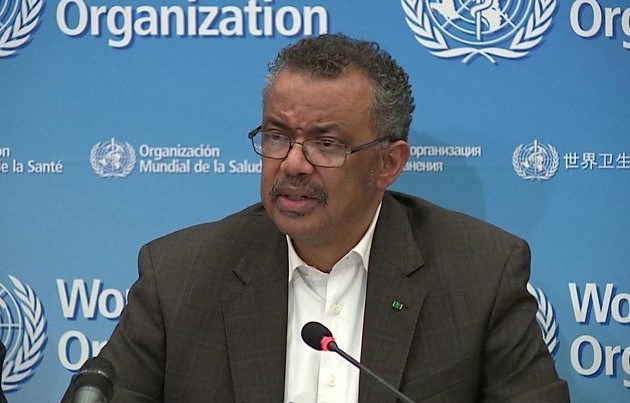Although the world is still facing many challenges, the WHO is encouraged by the progress made against the coronavirus in 8 months, its Director-General Dr Tedros Adhanom Ghebreyesus said at a media briefing on Friday.
He repeated that, “With national unity and global solidarity, we can and will end this pandemic.”
Referring to a discussion on the previous day (3 September) with foreign ministers from the G20 countries, he said that the focus of the discussion was on how societies, economies and borders can be reopened.
“Lockdowns are a blunt instrument that have taken a heavy toll in many countries,” the Director-General said. “With the right mix of targeted and tailored measures, further national lockdowns can be avoided.”
"Several countries are using a data-driven approach to drive a targeted response. This is allowing them to open up carefully and safely, while remaining ready to respond rapidly to any new clusters or amplifying events.”
He reiterated that the WHO urges countries to focus on four priorities: preventing amplifying events, empowering people to protect themselves and others, focusing on the public health basics, and protecting the vulnerable, including older people and those with underlying conditions.
In his remarks he stressed the need to take care of the risk group with non-communicable diseases (NCDs). “COVID-19 has preyed on people with non-communicable diseases such as cancer, cardiovascular disease, diabetes and respiratory disease.”
Globally, NCDs and their risk factors are increasing vulnerability to COVID-19 infection and the likelihood of worse outcomes, including in younger people. The odds of developing severe COVID-19 have been found to be as much as seven times higher in patients with obesity. Smokers have been found to be one-and-a-half times more likely to have severe complications from COVID-19.
A systematic review has shown that people with diabetes are between 2-4 times more likely to have severe symptoms or die from COVID-19.
The coming week is a Global Week for Action on NCDs, which aims to increase accountability by governments, policy makers, industries, academia, and civil society to reduce the NCD burden globally and increase health and equality, he said.
He was also optimistic about having good news about a vaccine for COVID-19 “in the coming months” without specifying exactly when. He did not mention the vaccine already developed by Russia without phase 3 clinical testing or the recent announcements by President Trump on an vaccine in time for the American elections in November.
“But if and when we have an effective vaccine, we must also use it effectively,” Dr Tedros said. “In time, as production increases, we want all people everywhere to have access to vaccines. But initially, when supply is limited, priority must be given to vaccinating essential workers and those most at risk – including older people and those with underlying conditions.
In other words, the first priority must be to vaccinate some people in all countries, rather than all people in some countries. “This is not just a moral imperative and a public health imperative, it’s also an economic imperative. In our interconnected world, if people in low- and middle-income countries miss out on vaccines, the virus will continue to kill and the economic recovery globally will be delayed.”
“Vaccine nationalism will prolong the pandemic, not shorten it,” he underlined and referred to the COVAX Facility as the agreed international mechanism for ensuring equitable global access to vaccines. 78 high- and upper-middle income countries and economies have confirmed that they will participate in the COVAX Facility.
The European Commission confirmed last week (31 August) its interest to participate in the COVAX Facility and will contribute €400 million in guarantees to support it. The COVAX Facility aims to purchase 2 billion doses by the end of 2021, by negotiating with a diversified portfolio of vaccine suppliers covering different scientific technologies, time delivery and prices.
The Brussels Times

